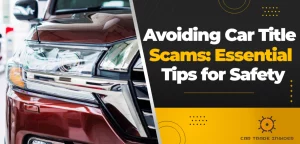Many individuals who are on welfare or receiving government assistance often find themselves wondering if they can purchase a car while in such a financial situation.
Buying a car can provide significant advantages, including improved mobility and access to better job opportunities. However, there are specific considerations and challenges that individuals on welfare should be aware of before making such a decision.
This article aims to explore the possibilities, options, and important factors to consider when contemplating buying a car while on welfare.
Understanding Welfare Assistance
Welfare, also known as public assistance or social support, is a government program that provides financial aid to individuals and families with low income.
It aims to help people meet their basic needs and improve their quality of life. While welfare programs differ between countries and regions, they generally include assistance for food, housing, healthcare, and other essential expenses.
The Importance of Transportation
Transportation plays a crucial role in modern society, allowing individuals to access education, employment, medical services, and recreational activities. For individuals on welfare, owning a car can be a transformative asset that opens up new opportunities and helps break the cycle of poverty.
Can You Use Welfare Benefits to Buy a Car?
In most cases, welfare benefits are not intended to be used for purchasing a car. These benefits are usually designated for necessities like food, rent, and healthcare.
However, every welfare program has its own set of rules and guidelines, and it’s essential to check with the specific agency administering the assistance to understand any potential allowances for car purchases.
Exploring Low-Income Auto Loans
For individuals on welfare who desire to own a car, low-income auto loans can be a viable option. Some financial institutions and organizations offer specialized auto loan programs tailored to low-income individuals, providing more accessible financing options and lower interest rates.
Here are some examples of low-income auto loan programs that are available:
- The Federal Motor Vehicle Credit Program (FMVCP)
- The U.S. Department of Agriculture’s Rural Development Auto Loan Program
- The National Foundation for Credit Counseling’s Auto Loan Assistance Program
- The Salvation Army’s Car Ownership Program
These programs offer low-interest rates and other financial assistance to help low-income individuals purchase a car.
Considerations When Buying a Car on Welfare
1. Assessing Your Budget
Before buying a car, it’s crucial to assess your budget thoroughly. Consider all your income sources, including welfare benefits, and evaluate your expenses to determine if owning a car is financially feasible.
2. Choosing an Affordable Vehicle
When on a limited budget, it’s essential to choose a car that fits your financial capabilities. Opt for a reliable, fuel-efficient, and affordable vehicle to minimize both the initial purchase cost and ongoing expenses.
Bonus: If you are looking for an affordable vehicle, check out these top used car websites that also offer financing options.
3. Factoring in Insurance Costs
Car insurance is a mandatory expense, and premiums can vary significantly based on factors like the vehicle’s make, model, and driving history. Research affordable insurance options to ensure that it fits within your budget.
4. Maintenance and Repairs
Cars require regular maintenance and occasional repairs. Budget for these expenses to avoid financial strain in the future.
5. Resale Value
Consider the potential resale value of the car you intend to buy. Opting for a car with good resale value can be beneficial in case you need to sell it in the future.
Exploring Alternative Transportation Options
In addition to owning a car, there are other transportation options that are available to individuals on welfare. These include Public transportation, Car-sharing services, and Biking. These options can be more budget-friendly than owning a car, and they can also be more environmentally friendly.
Government Programs and Support
Some government programs offer additional support for low-income individuals seeking car ownership. Researching and understanding these programs can be beneficial in easing the financial burden.
Making an Informed Decision
Buying a car is a significant financial decision. Take your time, weigh the pros and cons, and make an informed choice that aligns with your current and future financial situation.
Building a Financial Plan
Create a comprehensive financial plan that includes car ownership costs. Consider seeking advice from financial counselors to ensure you are making the right choices for your unique circumstances.
Benefits of Car Ownership for Individuals on Welfare
Owning a car can enhance the quality of life for individuals on welfare. It can improve access to better job opportunities, healthcare facilities, and educational institutions.
Conclusion
Buying a car while on welfare is possible, but it requires careful planning, research, and budgeting. Assess your financial situation, explore low-income auto loan options, and consider alternative transportation solutions.
Owning a car can offer transformative benefits, but it’s essential to make an informed decision that aligns with your current financial capacity and future goals.
Frequently Asked Questions (FAQs)
1: Is it possible to buy a brand-new car on welfare?
While it is theoretically possible, it is not common for welfare benefits to cover the cost of a brand-new car. Most assistance programs prioritize providing support for basic necessities.
2: Can I use welfare benefits as a down payment for a car?
In general, welfare benefits are not intended to be used as a down payment for a car. However, some regions may have specific allowances for such use. It’s best to check with your welfare agency for clarification.
3: Are there special auto loan programs for individuals on welfare?
Yes, some organizations offer specialized auto loan programs for low-income individuals, which may be accessible to those on welfare.
4: How can I find affordable car insurance while on welfare?
To find affordable car insurance, it’s advisable to compare quotes from different insurance providers and explore discounts and offers tailored to low-income individuals.
5: What are some other affordable transportation options besides owning a car?
Besides owning a car, alternative transportation options like public transportation, car-sharing services, biking, or walking can be more budget-friendly for individuals on welfare. These options vary depending on your location and needs.




